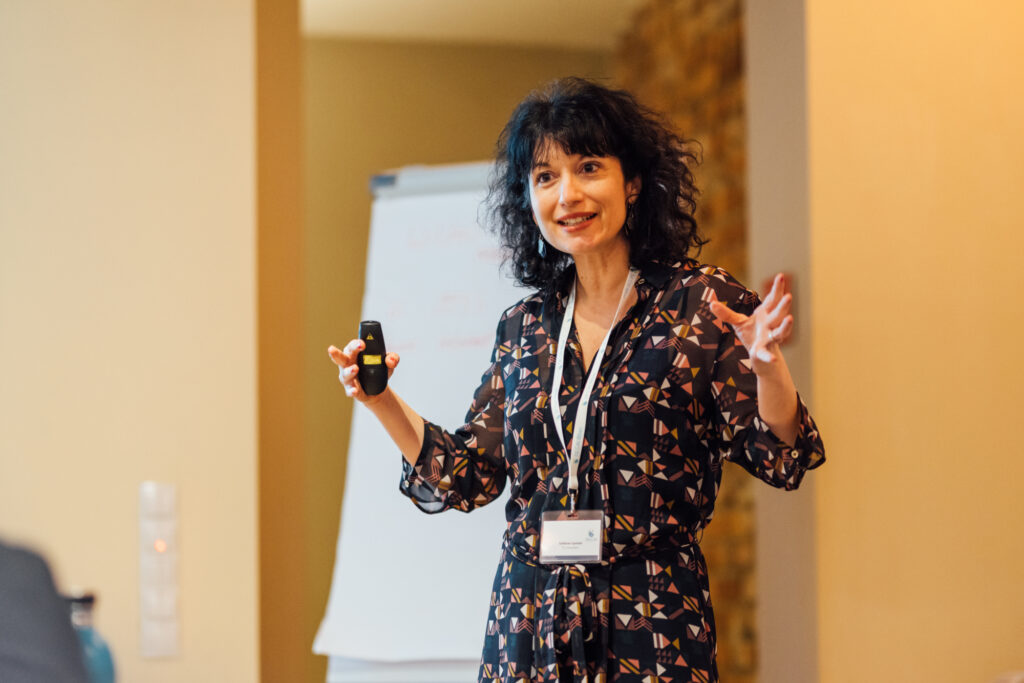Human-Machine Collaboration in Surgery – Bridging the Gap between Robotics and Data Science
Monday, 11.09.2023, 15:45 – 16:45
Barkausen-Bau BAR/SCHÖ/E
by Stefanie Speidel

Stefanie Speidel is a full professor for “Translational Surgical Oncology” and director at the National Center for Tumor Diseases (NCT/UCC) Dresden since 2017 as well as one of the co-speakers of the DFG Cluster of Excellence CeTI since 2019 and the Konrad Zuse AI school SECAI since 2022. She received her PhD from Karlsruhe Institute of Technology (KIT) with distinction in 2009 and had a junior research group “Computer-Assisted Surgery” from 2012 – 2016 at KIT. She is an elected board member of the Medical Image Computing and Computer Assisted Interventions (MICCAI) society and an appointed member of Rat für Informationsinfrastrukturen (RfII). She has been (co)-authoring more than 130 publications and regularly organizes workshops and challenges including the Endoscopic Vision Challenge@MICCAI and the Surgical Data Science workshop. She has been general chair and program chair for a number of international events including the International Conference on Information Processing in Computer Assisted Interventions (IPCAI) and MICCAI conference. Her current research interests include machine learning for image- and robot-assisted surgery, data-driven surgical training and context-aware human-machine collaboration in the future sensor operating room.
Abstract
Increasingly powerful technological developments in surgery such as modern operating rooms (OR), featuring digital and interconnected as well as robotic devices provide a huge amount of valuable data which can be used to improve patient therapy. Although a lot of data is available, the human ability to use these possibilities especially in a complex and time-critical situation such as surgery is limited and is extremely dependent on the experience of the surgical staff.In this lecture, AI-assisted surgery with a specific focus on analysis of intraoperative video data is presented. The goal is to democratize surgical skills and enhance the collaboration between surgeons and cyber-physical systems by quantifying surgical experience and make it accessible to machines. Several examples to optimize the therapy of the individual patient along the surgical treatment path are given. A focus of this talk will be synthetic data generation, intraoperative context-aware assistance as well as data-driven surgical training. Finally, remaining challenges and strategies to overcome them are discussed.
